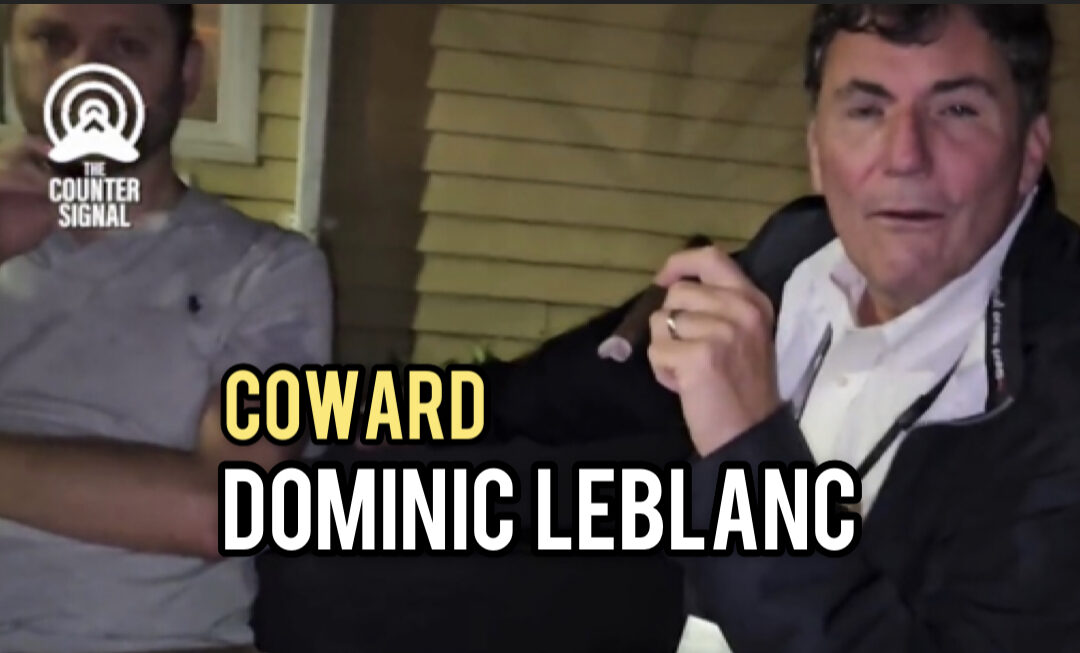An unexpected confrontation between conservative reporter Keean Bexte and Dominic LeBlanc, Public Safety Minister of the Liberal Party of Canada, has ignited a fervent debate and raised important questions about ethics, transparency, and government accountability.
The encounter unfolded in a public setting, where Mr. LeBlanc was spotted sitting on a bench, leisurely enjoying a cigar. As fate would have it, reporter Keean Bexte confronted the disgraced minister, unearthing a series of controversies that have marred LeBlanc’s political career.
One of the most significant controversies LeBlanc has been embroiled in centers around a conflict of interest related to a valuable fishing license. The Canada ethics commissioner deemed that Dominic LeBlanc had violated conflict of interest rules when he awarded an Arctic surf clam license to a company linked to his wife’s cousin. This prior incident cast a long shadow over the recent exchange between Bexte and LeBlanc.
The confrontation took an unexpected turn when Bexte, displaying the characteristic fearlessness of investigative journalists, pressed LeBlanc on the current unemployment rate. Caught off guard, LeBlanc stumbled through a response, stating that he was not available for interviews at the time. Bexte seized the moment to highlight the plight of millions of Canadians who are grappling with unemployment and wildfires, juxtaposing their struggles against LeBlanc’s apparent detachment.
However, the crux of the encounter arose when Bexte raised allegations concerning Minister Steven Guilbeault’s alleged connections to the Chinese Communist Party. LeBlanc responded dismissively, employing a sarcastic analogy involving tinfoil hats. Bexte, seemingly undeterred, countered by asserting that he had concrete documents supporting the claim and pointed to a substantial financial contribution of $1.6 million. The exchange reached a crescendo as LeBlanc sported a seemingly triumphant grin, evoking a sense of intrigue and suspicion.
Despite the tense back-and-forth, Bexte bid LeBlanc farewell, expressing his lack of surprise at the lack of substantial answers from what he referred to as “corrupt liberals.” This final exchange exemplified the frustration and skepticism felt by many citizens towards government officials and their perceived lack of accountability.
In the aftermath of this confrontation, media and public discourse have amplified the discussions surrounding ethics, conflicts of interest, and transparency within the government. As news outlets dissect the exchange and analyze its implications, it becomes clear that this incident could have far-reaching consequences on the reputation and credibility of the Liberal Party of Canada.
As the nation remains captivated by this saga, observers are left to ponder the larger issues at play—how government officials handle accusations, navigate ethical dilemmas, and interact with the media. The exchange between Bexte and LeBlanc serves as a microcosm of the broader challenges faced by democratic societies in the quest for open and accountable governance.



How anyone could think that the liberals have any credibility is beyond me. They have proven themselves to be the most unethical party in Canadian history. If it wasn’t for the equally unethical NDP the liberal party would not be in power.